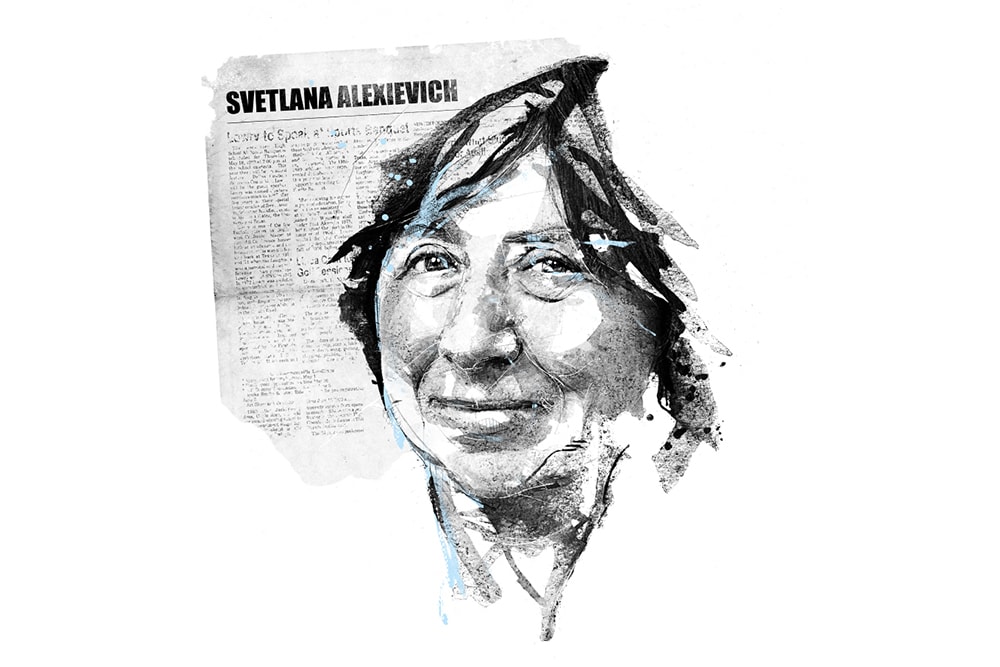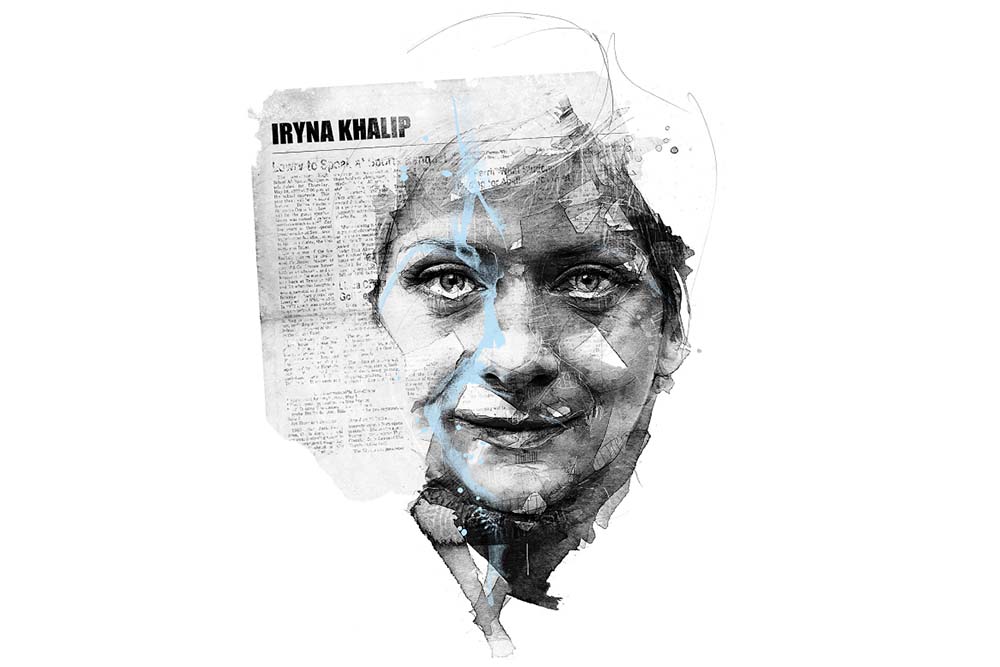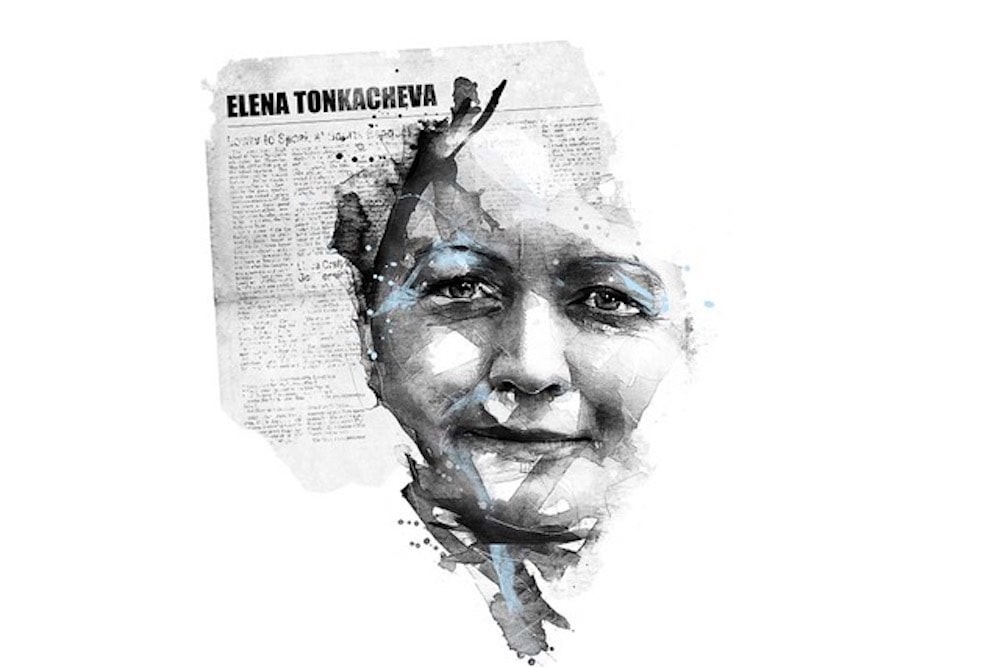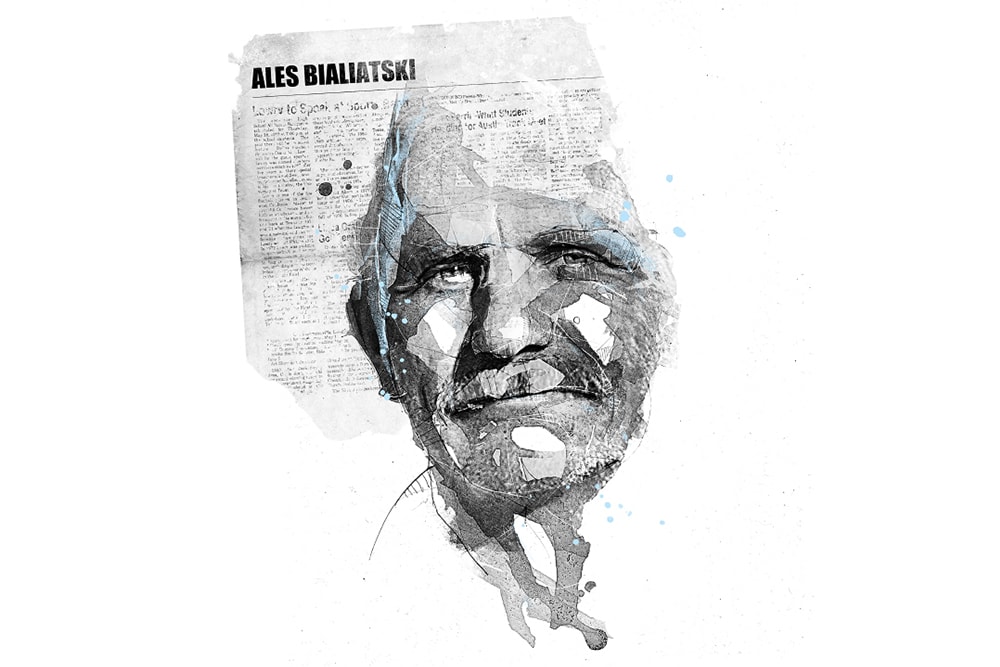Nobel Prize-winning journalist Svetlana Alexievich's books give voice to people, particularly women, who have lived through war and the aftermath of the Chernobyl nuclear disaster.
In her preface to My Story, the memoir of Belarusian dissident Andrei Sannikov, Svetlana Alexievich writes: We naive heralds of perestroika now understand that the road to freedom is a long one, that we all need as much courage as during the days of communism – or perhaps still more, since those in power today are more concerned with their wealth than with ideas.
On 8 October 2015, Svetlana Alexievich was named winner of the Nobel Prize for Literature for her work described as ‘a monument to suffering and courage in our time’. She was the first journalist to win the award. Alexievich’s books give voice to people, particularly women, who have lived through war and the aftermath of the Chernobyl nuclear disaster.
Alexievich started her career as a journalist after leaving university in the mid-1970s. By the mid-1980s, she had developed her own style of reporting, leaving all that needs to be said to her interviewees. Her book, War’s Unwomanly Face, an oral history of Belarusian women who had fought in World War II, gives an insight into the everyday war experience of ordinary people. Its poignant alternative narrative to the bombastic official celebrations of the 40th anniversary of the Soviet victory over Nazi Germany – which were being staged when it was published in 1985 – struck a chord with readers. The book sold over 2 million copies.
In Zinky Boys, published in 1989, Alexievich again allows her interviewees to speak for themselves. The stories told by mothers, families and friends of Russian soldiers sent to fight the war in Afghanistan only to have their corpses returned in zinc coffins, are at times painful to read.
Then – a decade after the 1986 explosion that destroyed the Chernobyl nuclear reactor – came Alexievich’s book, Voices from Chernobyl: The Oral History of a Nuclear Disaster. Published in 1997, the book was based on her interviews with more than 500 people. Once again, using personal testimonies, she chronicled the catastrophe through those who directly experienced it: residents forced to flee, ill-equipped emergency crews sent to clean up and repair the damaged reactor, doctors, politicians and others.
Rather than being celebrated for her work, Alexievich was denounced by the Belarusian authorities as ‘unpatriotic’ and, in 1992, a court case was brought against Zinky Boys for tarnishing the memories of those who fought in Afghanistan. The case was dropped in 1994. Eventually, Alexievich could no longer continue to stay in Belarus. She left in 2000, and spent time in Berlin and Paris, as well as in Gothenburg as a guest of the International Cities of Refuge Network program. She returned to Belarus in 2011.
That the Nobel Prize had been granted for the first time to a Belarusian writer could not be ignored by President Lukashenko. In a press conference a few hours after the announcement, he made a lukewarm acknowledgement, saying that he was ‘honestly happy’ about the news, adding: “I hope very much her award will serve our state and the people of Belarus”. As Deutsche Welle points out, the award came at an uncomfortable moment for Lukashenko, who was seeking his fifth term in elections held three days later. Inevitably, he won with a landslide victory, amidst concerns of shortcomings in the way the elections had been conducted, as has been the case for every election since Lukashenko first took office in 1994.
In 2011, Alexievich told the Swedish PEN Centre’s The Dissident Blog of the historical factors behind Lukashenko’s hold on power. “The people don’t understand what this thing called Freedom is … Their lives began in Stalinist terror, and then there were seven more years of terror after the Second World War. The necessities of life were always scarce. And then came Chernobyl. These are the kinds of things that make up their lives. They don’t know anything else.”
Alexievich at times suffers threats because of her work. In August 2018, she was forced to cancel her appearance at a meeting with readers in Odessa, Ukraine. She had been due to take part in a literary event at the city’s Green Theatre, when it became known that a Ukrainian nationalist website, Myrotvorets, had added her name to a list of “enemies of Ukraine”. The website accused her of “propagating inter-ethnic discord and manipulating information important for society” in a speech she’d delivered in New York in 2016. Alexievich dismissed the claims as “absolutely far-fetched” but decided that it was safer to stay away from the meeting, which the theatre decided to cancel entirely.
In the summer of 2020, amidst the brutal crackdown on the mass protests that swept Belarus following a rigged presidential election, Alexievich found herself centre-stage as international attention focused on her homeland. As one of the best known members of the Coordination Council (a group set up by the opposition to facilitate a political transition in the country and call new, free presidential elections), she was quickly targeted for interrogation by the regime.
By early September 2020, all members of the Council except for Alexievich had fled to exile under pressure from the authorities or been jailed. But Alexievich’s freedom was soon under threat. On 9 September, she alerted the press that “men in black masks” (similar to those who had been snatching opposition protesters off the streets) were trying to enter her Minsk apartment. Diplomats from at least seven countries – including the Czech Republic, Sweden, Slovakia, Germany and Poland – responded to her call and rushed to her home to stay with her in an act of solidarity. The masked men departed.
In late September, Alexievich left Belarus to receive medical treatment in Berlin, saying that she would return when her health improved.
Illustration by Florian Nicolle



